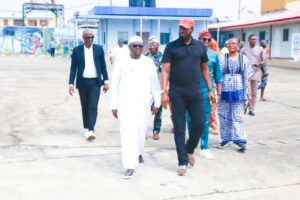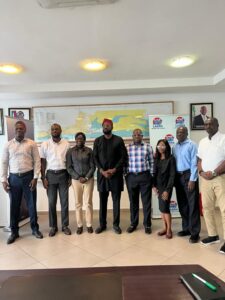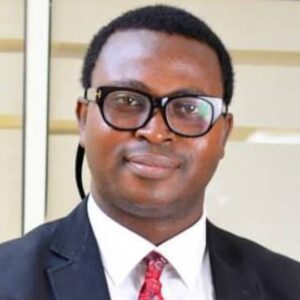Sanwo-Olu Re-affirms Commitment to Renewable Energy, Signs MoU with REA
9 months ago 0
Sanwo-Olu
At a Roundtable Meeting on Rural Electrification and Sustainable Energy Development held Monday at the Oriental Hotel in Victoria Island, Mr Sanwo-Olu—represented by Deputy Governor Obafemi Hamzat—announced a strategic partnership with the Rural Electrification Agency (REA) to address the state’s enduring electricity supply challenges.
The event, convened by the Lagos State Ministry of Energy and Mineral Resources (MEMR), drew participants from government agencies, private sector players, and civil society organisations, all focused on crafting sustainable energy solutions for underserved communities.
“Our collaboration with REA is strategic,” Mr Sanwo-Olu said. “It targets one of the biggest obstacles to productivity in Lagos—and across Nigeria—unstable power supply. We’re working towards a cleaner, safer, and more reliable energy grid.
Despite Nigeria’s considerable electricity generation potential, the governor noted, distribution failures remain a critical bottleneck.
He revealed that Lagos alone harbours an estimated 4.5 million generators—many within the 30kVA to 50kVA range—used by businesses and households unable to rely on the national grid.
“This underscores the urgent need for decentralised and sustainable energy systems,” Mr Sanwo-Olu said, adding that Lagos will collaborate with the Renewable Energy Asset Management Company to guarantee long-term energy solutions.
He urged Community Development Associations (CDAs) and Community Development Committees (CDCs) to play a greater role in identifying energy needs and ensuring grassroots participation in project implementation.
MEMR Commissioner Biodun Ogunleye reiterated that the initiative aims to reduce Lagos’ dependence on fossil fuels while broadening access to clean, stable electricity. “This partnership will unlock new energy opportunities and move us closer to uninterrupted power supply for all Lagosians,” he said.
REA’s Managing Director and Chief Executive Officer, Abubakar Aliyu, said the agency is positioning itself as Nigeria’s hub for renewable energy infrastructure.
He noted that over N200 billion has been spent on solar photovoltaic (PV) panel imports, but localisation efforts are gaining momentum.
“Lagos, as the centre of excellence, is poised to lead this shift,” Mr Aliyu said, citing the expansion of a PV panel manufacturing plant in Ikotun from 10 to 100 megawatts, aided by REA support.
He also disclosed that REA is finalising a $150 million joint development agreement with Green World for a lithium battery assembly plant in Lagos. “We’re shifting the narrative—from import dependence to local production—and Lagos is central to this transformation,” Mr Aliyu added.
The high point of the event was the signing of a Memorandum of Understanding (MoU) between Lagos State and REA, aimed at accelerating decentralised solar projects in rural areas.
Fossil fuel burden
A recent report by Sustainable Energy for All (SEforALL), produced in partnership with the Lagos State Government, revealed that Nigerians spend an estimated $10 billion (N7.6 trillion) annually on fuel and generator maintenance.
The report, titled Beyond Gensets: Advancing the Energy Transition in Lagos State, underscores how deeply reliant the country remains on fossil fuels.
According to the study, the average small business in Nigeria spends between N20,000 and N40,000 monthly on generator fuel. “This is often the highest cost item for many SMEs,” SEforALL reported.
The report further noted that the cost of electricity from petrol generators is 83 per cent higher than grid-supplied electricity, presenting a major economic constraint.
In Lagos, this dependence comes at a steep environmental cost. The state reportedly emits 39 million tonnes of carbon dioxide equivalent (tCO2e) annually—more than the combined emissions of Rwanda, Gabon, and Togo.
Residential use alone accounts for 21 million tonnes, followed by the commercial sector with 17.8 million tonnes, and markets contributing 141,125 tonnes.
Lagos’s generator capacity is estimated at 19 gigawatts (GW), surpassing Nigeria’s national grid’s installed capacity of 12.2 GW.
“This makes Lagos a microcosm of the country’s energy crisis,” the report said, highlighting grid unreliability, underinvestment, and infrastructure decay.
SEforALL also stressed the health implications of generator use. According to the World Health Organization, air pollution remains a top environmental risk factor, contributing to millions of deaths globally each year.
Mr Ogunleye acknowledged the urgent need for Lagos to lead Nigeria’s energy transition. “By understanding and acting on the impact of fossil-fuel generators, we are advancing toward a cleaner, sustainable future,” he said.
Flashback
In January, Mr Ogunleye stated that Lagos market operators spend over N9 billion annually on fueling approximately 13,000 generators, particularly in high-income areas such as Lekki and Ikoyi.
Speaking at the Lagos Chamber of Commerce and Industry’s Power Sector Seminar, he revealed that an estimated four million generators are being used for residential electricity needs across the state.
The MEMR’s Gen Set Studies report was commissioned to assess the landscape as Lagos prepares to implement its new electricity law.
Mr Ogunleye stated the state government would not invest directly in energy projects but would provide a robust regulatory framework.
“We’re not interested in running the business. That’s for the private sector,” he said. “But we’ll ensure stakeholders are held accountable. There will be sanctions for non-performing operators and penalties for defaulting consumers.”
He also clarified that the new law does not provide for subsidies, although the ministry aims to ensure affordability and reliability in the long run.
LCCI President Gabriel Idahosa noted that stable electricity in Lagos would ripple across Nigeria’s economy. “Once Lagos solves its power problem, the national economy will gain a new lease on life,” he said.
This initiative builds on previous efforts. In February, the governor’s Special Adviser on Rural Development, Nurudeen Agbaje, launched the Lagos Rural Electrification Initiative, focused on distributing transformers to underserved areas.
Mr Agbaje said installations are prioritised based on community assessments. “We are bridging the energy gap to fuel inclusive development,” he said.
In contrast, communities like Epe have endured prolonged blackouts. In 2016, federal lawmaker Olawale Raji said N12 billion was needed to restore power to the area after a transmission project was abandoned.
Mr Raji lamented the impact of federal neglect on livelihoods and development.
Stakeholders now hope that with the Lagos-REA partnership, decentralised renewable energy will finally light up communities long left in the dark.








